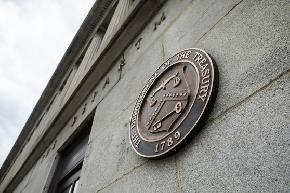WASHINGTON, DC-Last week President Barack Obama proposed implementing new rules that would rein in the size and scope of the largest financial institutions. Although details were scant, certain proposed measures included restrictions on some banks’ ability to trade securities–including mortgage backed securities–for their own account or set up in-house hedge funds.
These measures, which have been interpreted to mean a reintroduction of tighter controls over the risks banks were allowed to take under the Glass-Steagall Act, would be on top of the proposed Consumer Protection Financial Agency that has been introduced in legislation. Angst over the proposed measure is widespread, both in the general market and the more narrow commercial real estate finance space.
Much of the concern is that the proposed measures introduce yet another element of uncertainty in what has been a turbulent year, says Ellen Marshall, co-chair of the Banking and Specialty Finance Practice group at Manatt, Phelps & Phillips, LLP.
“That just leads to an even greater reluctance on the part of banks to lend,” she tells GlobeSt.com. “Bankers who do not know if they are going to be restricted in how they can finance their portfolio of loans or hedge them, will certainly become more reluctant to expand that portfolio, at least until the new rules are in place.”
In the short-term, any major changes introduced in the banking industry today will only cause more harm to the economy, says attorney Edward A. Mermelstein of New York City-based Edward A. Mermelstein Associates.
“If anything like these proposed plans were to be implemented, it should be over a longer period of time, simply because the commercial real estate market is in shambles,” he tells GlobeSt.com. “If banks are forced to liquidate positions or adjust positions in their real estate investment portfolios, it will simply cause further havoc.”
Despite concern over the short- and medium-term volatility that is likely to be introduced in the run-up to any new legislation, there is a contingency of investors that wish to see a new regulatory regime.
The problem is simple: too big to fail is too big to exist, and the Congress has allowed investment banks and commercial banks to merge and expand into areas that were previously divided, says Wayne Rogers of Wayne Rogers & Co.
“With the erosion of the Glass-Steagal Act, money-center banks were able to grow to a point at which they were too big to fail, through the activities of underwriting securities, trading stocks and bonds, selling derivatives and more,” he tells GlobeSt.com. “Trying to correct this by regulation will only sow the seeds of another financial debacle.” It must be done legislatively instead, he concludes.
Were these measures to pass, there would clearly be some upheaval among institutions–but also new entrepreneurial opportunities, as big banks spin off proprietary trading and private equity business lines to attract their own risk-adjusted capital, according to Jim Clark, managing principal of Alter Asset Recovery.
The downside, of course, is that the possible higher capital cost required to fund these activities and independent businesses may lead to increased capital to the end recipient of such investments, Clark tells GlobeSt.com–similar to the rise in gas prices at the pump when oil prices ticked up.
Another factor to consider is that foreign banks, which may not be subject to such restrictions, are likely to have a competitive advantage in such services as balance sheet financing for securities offerings or mergers and acquisitions transactions. “Thus, foreign banks may move in on the market share of US investment banks,” Clark continues.
From the commercial real estate perspective specifically, “to the extent these proposals may restrict banks from using their balance sheets to warehouse mortgage loan originations in advance of securitization, it would obviously be one more factor curtailing a revival of CMBS issuance,” Clark says. But, he hastens to add, “it is not clear from what I’ve read so far that this is the case.”





 Copyright © 2024 ALM Global, LLC. All Rights Reserved.
Copyright © 2024 ALM Global, LLC. All Rights Reserved.











